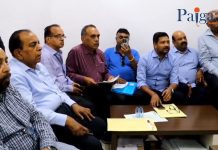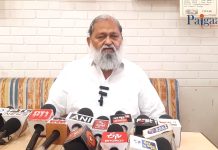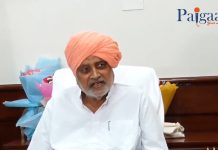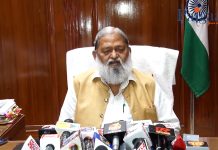Chandigarh: The Haryana Police, it seems, are on a collision course with the judiciary. Having shot off a ‘confidential’ complaint to the Punjab and Haryana High Court against an Additional District and Sessions Judge (ADSJ) , alleging misbehaviour, they have now sought permission to withdraw it.
The High Court is believed to have refused to give its consent to withdrawal of the complaint and is reportedly looking into the matter.
Sources in the judiciary call it an attempt by the police to even things out. A senior officer, in the know of the things, said the move had come after “critical orders” by the judge, who, while hearing a case, had in his April 4 order virtually rapped the police for unfair investigation. The police complaint, he claimed, was an offshoot of that.
An Assistant Commissioner of Police, Panchkula, when contacted, said he knew nothing about the complaint as the officer-complainant had been transferred out of the district. A senior High Court functionary said the complaint was pending and the police had indeed sought permission to withdraw it.
The complaint was submitted on June 12 by Panchkula’s then Assistant Commissioner of Police to the Registrar, Punjab and Haryana High Court, through “proper channels”. Among other things, it was alleged that the judicial officer had misbehaved and threatened members of a SIT constituted to look into an FIR registered in February with a Panchkula police station. The complaint also alleged interference in the investigation. Seeking an inquiry against the judge, the police sought preservation of the footage of CCTV cameras installed in the court premises for “further investigations”. However, the following day, it sent a single-page handwritten application to the HC Registrar (Vigilance), saying the SIT did not want to pursue the complaint against the judicial officer and that their submission may be accepted.
The HC is believed to have asked the Panchkula Commissioner of Police to depute officials to appear before it, indicating it had decided to look into the matter.

















































